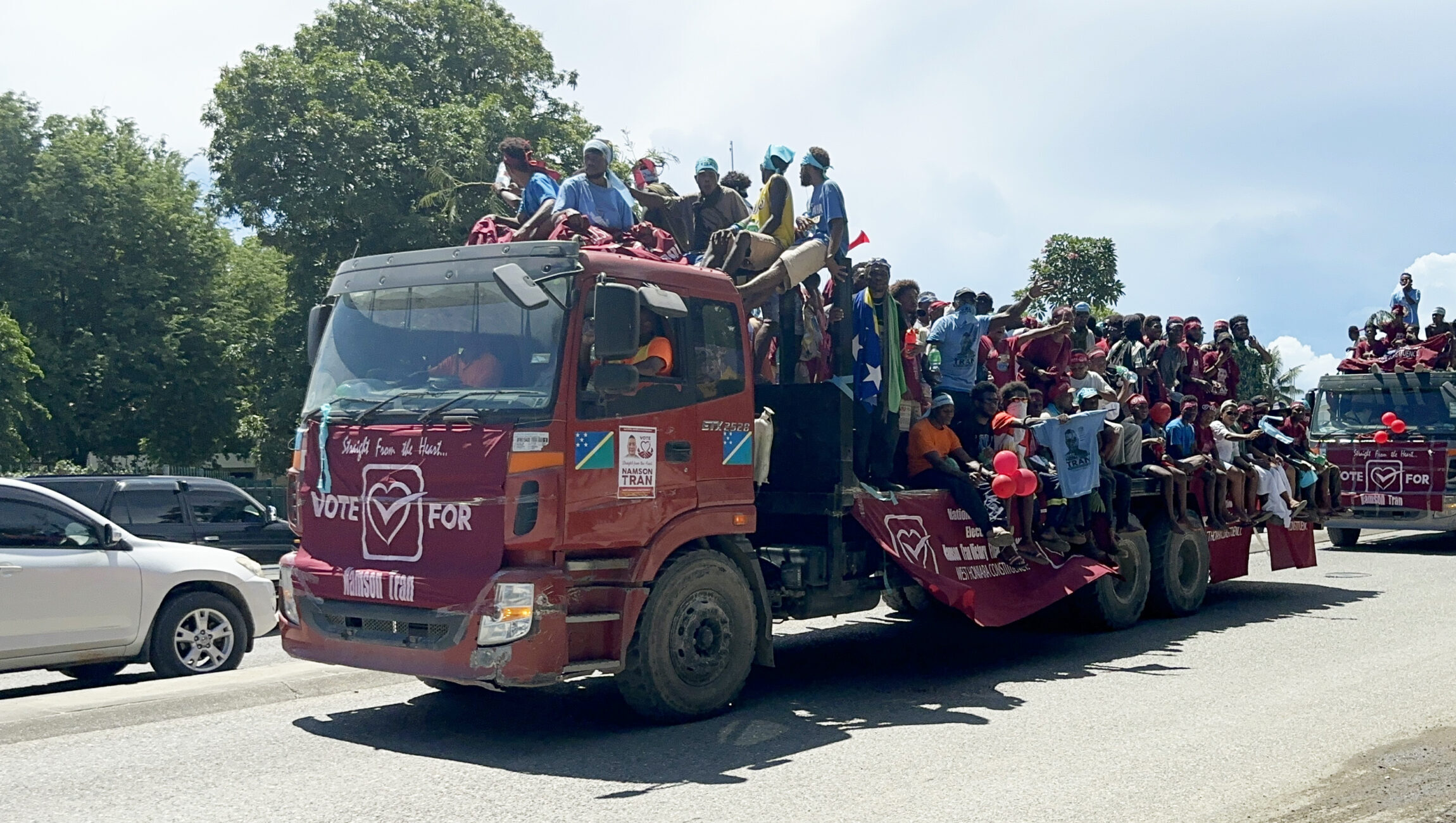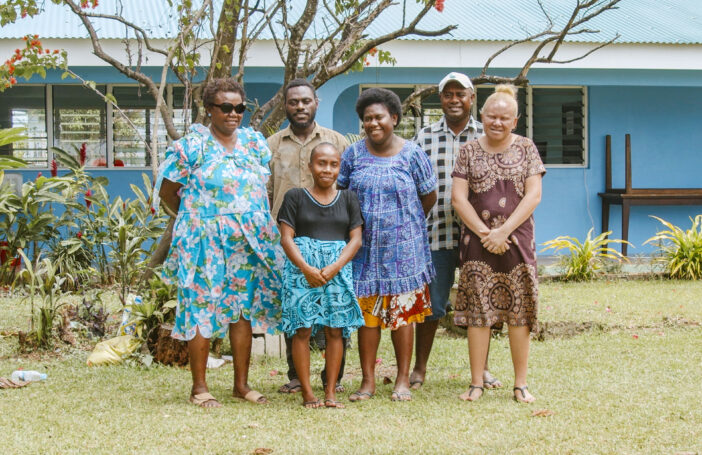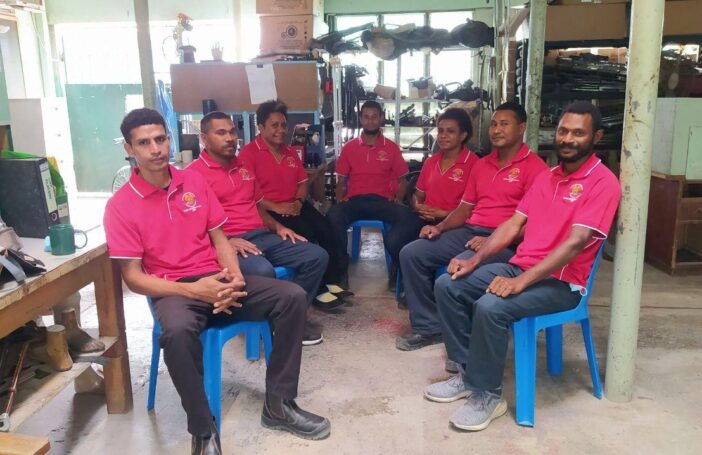This is a further instalment in the Pacific Family Matters series.
Australia’s development strategy is world-leading in how it foregrounds the issue of disability equity and rights, along with gender equality and climate change — three issues that are of huge importance to the Pacific Islands region. The 2023 International Development Strategy notes that: “For development to be effective, people with disabilities must be partners on an equal basis.”
This is important, as according to the World Health Organization 16% of the world’s total population lives with significant disability. In Solomon Islands, similar figures are reported by the National Statistics Office — 16% of men and 17% of women — with older and rural populations more likely to experience disability. Disability status has a substantial impact on access to healthcare, employment and education. While the Solomon Islands government has a national inclusive education policy, just one in 50 children with disability attends primary school (compared to 2 in 3 children overall). The 2019 census recommended that the government take more action to meet its obligations to citizens with disability.
One critical area for disability equity is politics and elections. To be equal partners, people with disability must have equal citizenship rights — including to vote, stand for elections and participate actively in all areas of the electoral process. The ANU-SINU research report on the 2024 Solomon Islands elections found that more than a third of polling stations observed had no access for people with disability. While this was an improvement on 2019, when slightly more than half of polling stations observed could accommodate voters with disability, it still paints a concerning picture for accessibility.
The reality is that voters with disability do not experience elections in the same way as other voters. They are less likely to be able to access a secret ballot. Priority access is given inconsistently across different polling locations, and where it is not offered long wait times add additional challenges to the process of voting. In seeking to mitigate these challenges, the 2024 report recommends the introduction of minimum accessibility standards for polling stations, as well as mobile polling options for elderly voters and voters with disability.
This aligns with the authors’ experiences observing as part of the Development Services Exchange (DSE) (Kelly) and ANU-SINU (Baker) observation teams. As noted in previous elections, stairs and other physical barriers were key accessibility constraints during polling. Yet even where ramps were available, they were often the only nod to accessibility. In Tuvaruhu polling station in Central Honiara constituency, where both authors observed voting, wheelchair users could access the polling station using a ramp but were not able to read informational materials or find their name on the roll print-out (which were placed at standing height along a wall).
Accessibility concerns are not limited to polling day; often the barriers arise well before voting. In 2024 survey data, 15% of respondents mentioned “medical issues or disabilities” as a reason why people in their community were unable to register to vote. This again aligns with Kelly’s experience as a Solomon Islands citizen. The 2024 election was the first election in which she was registered as a voter. In previous elections, the difficulty of finding transport to registration centres — and the certainty of long wait times once there — stopped her from registering.
In 2024, an offer to be an election observer inspired her to make a renewed effort to register and vote. Indeed, a notable element of the 2024 election was a significant cohort of observers with disability, particularly with the DSE observation group, who were able to apply an observation lens informed by personal experience (even if this was not fully reflected in data collection and reporting). This personal experience is important, and enriched the observation process — but it was not seen elsewhere in the process, with people with disability significantly under-represented as electoral officials, candidates and political-party officeholders.
This is the problem: when we talk about disability equity in politics and elections, efforts are focused around involvement in the process as voters and more recently as observers. But the key issue is equal citizenship. This means not just addressing inequities on polling day, but throughout the whole electoral cycle and across the whole political system.
The Australian aid program has done an impressive job of mainstreaming disability programming. Australia’s International Disability Equity and Rights Strategy sets out a roadmap to move from a framework of disability inclusion to an equity and rights-based approach. In a politics and elections context, this means tackling the intersectional causes of the marginalisation of people with disability and facilitating their active participation in electoral and political processes — not just as voters and observers, but as polling and counting staff, as candidates and elected officials, as political party volunteers and leaders and as decision-makers.
What we would like to see are whole-of-electoral-cycle initiatives that promote equal citizenship with a focus on disability. A big component of this is wide-ranging civic awareness. Another is embedding disability liaison officers across key institutions who can identify and work to dismantle barriers to disability equity. The goal is a Pacific region where people with disability can be actors in politics rather than subjects of policy.
This is part of the Pacific Family Matters series which explores priorities for the re-elected Labor government’s engagement on development issues with the Pacific Islands region. The series draws on the expertise of the Pacific Research Program, a consortium led by the Department of Pacific Affairs at the Australian National University (ANU), in partnership with ANU’s Development Policy Centre and the Lowy Institute.





Congratulations on this important work. People with disabilities in developing countries remain the poorest of the poor. Their voice needs to be heard in every forum, including parliament. remain the
This post exposes a real experience of disability equity case in local election participation in SI, a similar situation would be seen in education and health care access. The less to no participation or limited access by disabled persons in development is inevitable across developing economies- why? It depends on the nation’s political and socio-economic development that may or may not focus on inclusive development. How nations like Australia see and read disability equity in Australia may not be the same as local SI see disability equity and access or participation in development activities – the same across other Pacific Island nations. Also note that, there are other enabling environment or development segments have to be in place for a disabled person/s to effectively participate and different forms of disability require different forms of enabling environments for him/her to fully participate and develop oneself. The first thing in a disability program is to undertake a data collection and needs assessment to develop a meaningful program for disability and gender equity mainstreaming activity. Then trial out a pilot project and use the evidence to advocate for greater integration. With the recent launch of Australia’s IDEARS, it will be interesting to integrate a disability pilot program and share the outcome.